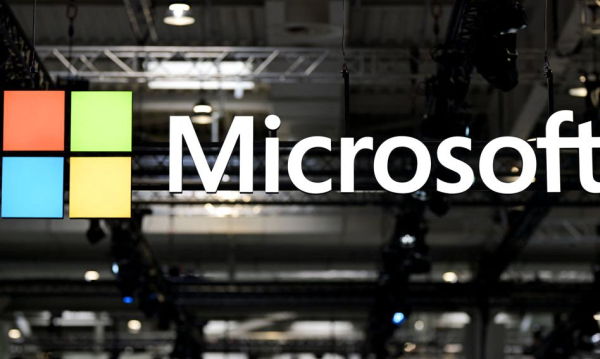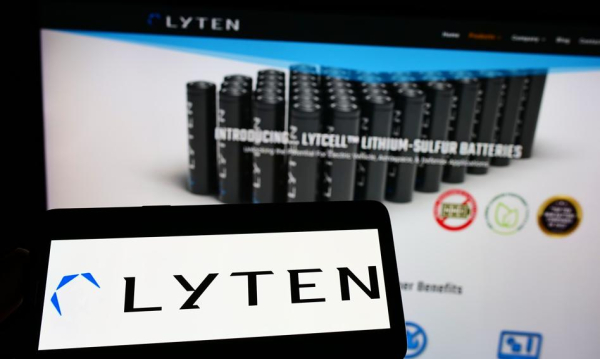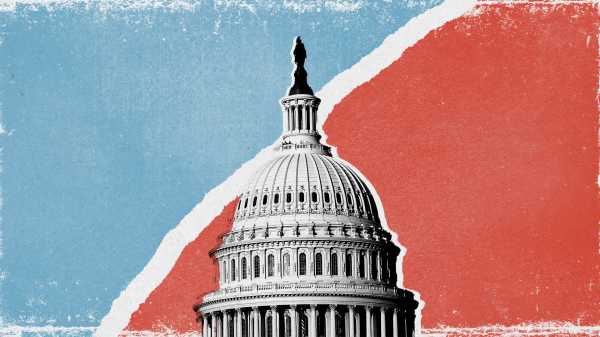 ” alt=”The 10 most important Senate elections, briefly explained” />
” alt=”The 10 most important Senate elections, briefly explained” />
The 10 most important Senate elections, briefly explained
These states will determine who controls the Senate in 2019.
By
Dylan Scott@dylanlscott
Updated
Sep 3, 2018, 8:30am EDT
Share
Tweet
Share
Share
The 10 most important Senate elections, briefly explained
tweet
share
The candidates for the most competitive Senate elections in the 2018 midterms are now set, and while Democrats will need a near-perfect November to win back control of the chamber, a fresh assessment of the Senate battlefield reveals that they should have several opportunities to pick up the seats they need.
Democrats always had an uphill climb to retaking the Senate. Ten Democrats are up for reelection in states that Donald Trump won in 2016. Right now, Republicans are clinging to a 50-49 majority, with the late Sen. John McCain’s seat soon to be filled by a Republican.
Democrats will still need to win most or all of West Virginia, North Dakota, Missouri, Montana, Indiana, and Florida — and then win the Republican-held seats in Nevada, Arizona, and maybe even Tennessee or Texas — in order to win the 51 seats they need.
Still, going by the polling averages, 10 Senate races look legitimately competitive heading into the final two months of the 2018 campaign. Others could still prove to be closer than they appear — Sen. Tammy Baldwin (D-WI) is an obvious candidate to see her race tighten, and Sen. Bob Menendez (D-NJ), fresh off a mistrial on some corruption charges, has had some worryingly close polls — but we’re leaving them off for now.
Here they are: 2018’s most competitive Senate elections, ranked by how tight the race is according to the current Real Clear Politics polling average.
Missouri: Claire McCaskill vs. Josh Hawley
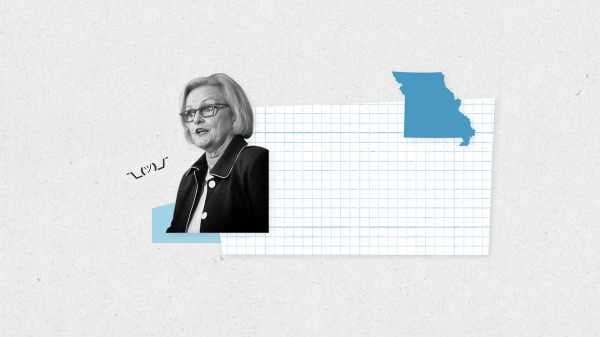
Who is the Democrat? Claire McCaskill, elected in 2006. Todd Akin slayer. Cancer survivor.
Who is the Republican? State Attorney General Josh Hawley.
How much does the state like Trump? Trump got 56 percent in 2016. These days, he is a little more divisive: 52 percent approval and 44 percent disapproval, according to Morning Consult. McCaskill has 40 percent approval and 44 percent disapproval, the firm found in July.
What’s interesting about this race, anyway? Missouri’s Republican governor, Eric Greitens, was ensnared in several different scandals — one in which he’s accused of sexual misconduct, another involving a veterans’ charity — before he was forced to resign in May. Republicans in the state desperately wanted him out, none more so than Hawley, who was doing everything he could to remove Greitens. McCaskill is vulnerable, as evidenced by her approval rating, but a state GOP tainted by scandal could be a boost to her chances.
What does the polling say? This is the tightest race by polling average: Just 0.2 points separates Hawley from McCaskill, with the Republican currently in the lead, according to Real Clear Politics. Cook Political Report rates it a toss-up.
North Dakota: Heidi Heitkamp vs. Kevin Cramer
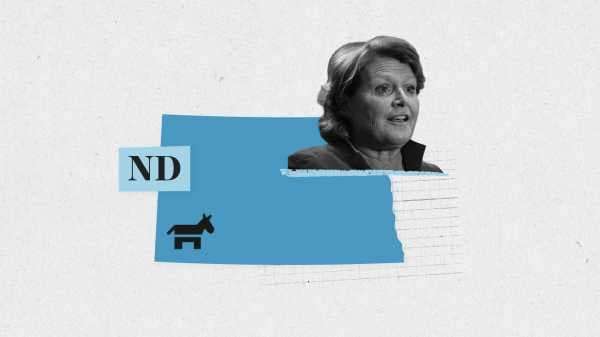
Who is the Democrat? Heidi Heitkamp, elected in 2012. She is a former state attorney general.
Who is the Republican? Rep. Kevin Cramer. Cramer was going to run, then he wasn’t, but now he is definitely running after a little bit of jostling from the Washington GOP establishment. They wanted a good candidate against Heitkamp; this is a top Republican target.
How much does the state like Trump? Trump in 2016: 63 percent. But the president’s approval is dropping: 50 percent approval and 46 percent disapproval. Heitkamp: 44 percent approval, 44 percent disapproval.
What’s interesting about this race, anyway? Now that Cramer is in, this will be a close race. He’s allied himself closely with Trump, particularly on key state issues like energy. Heitkamp cuts an independent image, and she is running on her support for Obamacare’s preexisting conditions protections after Cramer voted to repeal the health care law in the House.
This is also where Trump’s trade war could hurt Republicans, though: The president’s approval rating has been dropping, and it’s been a focus of Heitkamp’s campaign so far.
What does the polling say? There are just two polls on this race: Heitkamp led by 3 points back in February, and Cramer was up 4 points more recently, which comes out to a 0.5-point average in Cramer’s favor. It’s a toss-up, per Cook.
Nevada: Dean Heller vs. Jacky Rosen
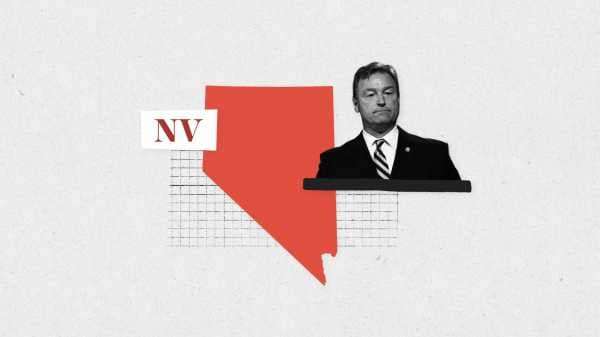
Who is the Republican? Dean Heller, who was appointed to the Senate in 2011. Perhaps the biggest loser of the Obamacare repeal debate, after he stood beside extremely popular Republican Gov. Brian Sandoval and said he wouldn’t support any plan that Sandoval didn’t — and then, a few months later, did exactly that.
Who is the Democrat? Rep. Jacky Rosen. First elected to Congress in 2016.
How much does the state like Trump? Heller holds the unfortunate-for-him distinction of being the only Senate Republican up for reelection in a state that Hillary Clinton won. Plus, Nevada is a state with an increasingly active Latino- and labor-dominated Democratic base. Trump is underwater: 45 percent approval, 51 percent disapproval. Heller himself is looking at 37 percent approval and 40 percent disapproval.
What’s interesting about this race, anyway? Obamacare repeal was a debacle for Heller. First, he held a press conference with Sandoval and proudly declared that for his state, which had expanded Medicaid to cover tens of thousands of poor people, the governor’s opinion would be the deciding factor — and Sandoval did not support repeal. But then after some browbeating from Trump and some reports that outside GOP money would help out Heller if he went along with the party, the senator ended up voting for several different repeal plans.
This is in a state that voted for Clinton, 48 percent to 46 percent, over Trump. The road was already hard for Heller. He didn’t make it any easier on himself.
What does the polling say? Rosen is eking out a 0.6-point average lead according to RCP. It’s a toss-up.
Florida: Bill Nelson vs. Rick Scott
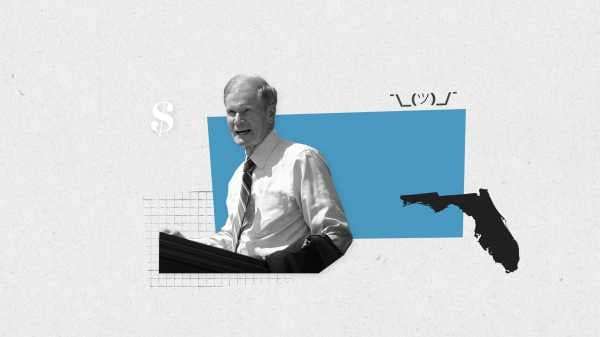
Who is the Democrat? Bill Nelson. Elected way back in 2000. Space traveler.
Who is the Republican? Republican Gov. Rick Scott, who is a pretty awkward human being but a pretty popular governor nevertheless. Notably stood up to the National Rifle Association after the Parkland high school shooting, which even Democrats give him credit for. Scott is also very, very, very rich and willing to spend his own money on campaigns.
How much does the state like Trump? Trump eked out a 49-47 win in 2016. These days, he has 50 percent approval and 45 percent disapproval. Nelson looks solid: 44 percent approval and 34 percent disapproval.
What’s interesting about this race, anyway? I’m not going to lie: These guys are really boring. Even their ostensible allies in the state say so. This race is all about money: Scott has a lot of it, he has nothing else to spend it on, and Nelson will have to keep up. So far, Scott has outspent Nelson by a 4-to-1 margin — the Democratic senator only recently went up on the state’s television airwaves.
There are some interesting twists, such as the political residue from Parkland and Puerto Ricans relocating here after Hurricane Maria. But cash rules everything around Miami.
(One wild card: Does excitement about Andrew Gillum, the Democratic nominee for governor and the first black Floridian to be nominated for governor, give an extra boost to the Democratic ticket? The first post-primary poll found Gillum with a solid lead and dragging Nelson to a narrow 1-point advantage over Scott.)
What does the polling say? Right now, with his spending advantage, Scott actually has a 1.2-point lead, on average, in the polling. Another toss-up.
Indiana: Joe Donnelly vs. Mike Braun
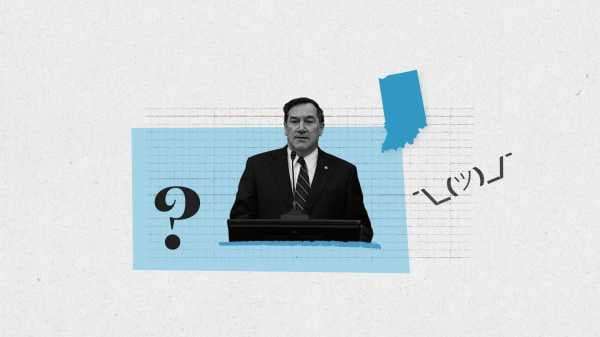
Who is the Democrat? Joe Donnelly, elected to the Senate in 2012. Former US representative.
Who is the Republican? State legislator Mike Braun topped Reps. Todd Rokita and Luke Messer in the May 8 primary.
How much does the state like Trump? This is Vice President Mike Pence’s home state, remember. Trump won with 56 percent of the vote in 2016. He looks okay right now in the Hoosier state: 51 percent approval and 45 percent disapproval. Donnelly is sitting at 41 percent approval and 34 percent disapproval.
What’s interesting about this race, anyway? Donnelly’s campaign announcements are really wonderful. A few recent samples from my inbox:
- Joe Donnelly, Indiana Republicans launch ‘Republicans for Joe’ in Indianapolis
- New TV ad highlights Joe’s successes putting Hoosiers before political party
- Joe Donnelly has the bipartisan appeal he needs, Washington Examiner says
This is a man who will remind you he is a Democrat only when absolutely necessary, which is probably smart in the Hoosier State. He’ll embrace his party on one issue, though: Donnelly is another vulnerable Democrat who is running hard on preserving Obamacare’s protections for people with preexisting conditions. Here are a couple other recent emails:
- Head down and working hard, Donnelly fights to protect preexisting conditions protections, Daily Beast says
- “Hoosiers are waiting for an answer” on Rep. Braun’s preexisting condition hypocrisy, Joe Donnelly says in new video
What does the polling say? This is one of the least-polled races around. One May poll put Braun up 1 point, but the most recent survey showed Donnelly leading by 12, which is hard to believe. Another race for the toss-up pile, per Cook.
Tennessee: Marsha Blackburn vs. Phil Bredesen

Who is the Republican? Sen. Bob Corker is retiring. Stepping up to replace him is Rep. Marsha Blackburn. First elected way back in 2002. Notably led the special House GOP committee to investigate Planned Parenthood.
Who is the Democrat? Former Gov. Phil Bredesen. Served two terms, leaving office in 2011. Mayor of Nashville before that.
How much does the state like Trump? We’re back in comfortable Trump territory. The president has 56 percent approval and 40 percent disapproval.
What’s interesting about this race, anyway? Bredesen has been out of politics for the better part of a decade, but the last time he did run here, he won 69 percent of the vote. Bob Corker even likes the guy.
Blackburn is a solid, pro-Trump conservative in all respects, though it’ll be interesting to see how abortion plays out here — she’s a darling of the anti-abortion crowd and a top villain among abortion rights groups.
What does the polling say? Bredesen is holding onto a 1.6-point lead in the RCP average. But he started with unusually strong name ID, and Blackburn is still introducing herself to the statewide electorate. The most recent survey showed the Republican up 4 points. This one should be close; Cook says it’s also a toss-up.
Arizona: Martha McSally vs. Kyrsten Sinema

Who is the Republican? Jeff Flake is retiring. Mainstream favorite Martha McSally, in Congress since 2014, prevailed pretty easily in a vicious GOP primary against conservative insurgent Kelli Ward and anti-immigrant, Trump pardon–receiving ex-sheriff Joe Arpaio.
Who is the Democrat? Rep. Kyrsten Sinema, elected in 2012. She served in the state legislature before that.
How much does the state like Trump? Trump squeaked out a 49-46 win in 2016 — and it was immediately on the 2018 Democratic radar. Arizona is evenly divided on the president: 48 percent approval and 48 percent disapproval.
What’s interesting about this race, anyway? Flake, you may remember, has given some very stern Senate floor speeches warning us what a danger to the republic Trump is, while voting for his agenda almost every time. Still, it’s an odd dynamic to have the outgoing Republican senator be such a noted critic of Trump.
McSally is one of the few Republican woman who isn’t afraid to focus on her gender, revealing she was sexually abused in high school and emphasizing her history as the first female fighter pilot in combat.
What does the polling say? Right now, Sinema is holding a 5.4-point average lead, according to RCP. We might expect that to narrow, though: McSally is a strong candidate, and the Republican establishment is excited about her. Cook rates this race a toss-up, too.
Texas: Ted Cruz vs. Beto O’Rourke
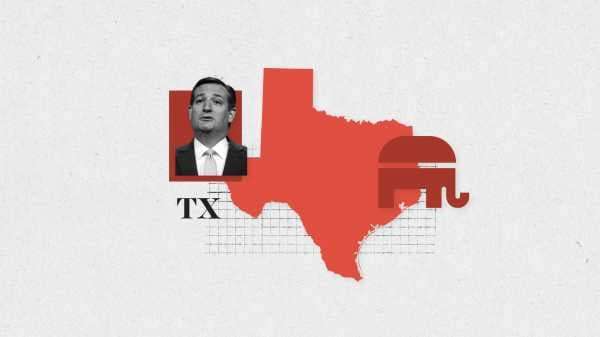
Who is the Republican? Sen. Ted Cruz, the one Republican who came the closest to toppling Trump in the 2016 primaries. Star of the failed 2013 government shutdown over Obamacare.
Who is the Democrat? Rep. Beto O’Rourke, who is as handsome as Ted Cruz is conservative. He was first elected in 2012.
How much does the state like Trump? Trump won here by the narrowest margin for a Republican in 20 years. He looks okay now: 52 percent approval and 44 percent disapproval. Cruz himself is faring better: 48 percent approval and 35 percent disapproval. Texas likes Ted.
What’s interesting about this race, anyway? Ah, the dream of purple Texas. Democrats keep convincing themselves they’re this close to winning statewide here and turning a Republican stronghold into a swing state. But so far, they haven’t been able to do it. Beto (we call him Beto) is the hero tasked with the job in 2018.
As for the campaign itself, well, Cruz’s campaign is attacking O’Rourke for allegedly making his name sound more Hispanic, which a few people have pointed out was weird for a guy whose first name is Rafael but goes by Ted. Then Beto wanted to debate Cruz in Spanish.
Next, there were the Texas GOP’s weird tweets recently that sought to portray O’Rourke as maybe a slacker loser who wouldn’t debate Cruz but ended up making the Democrat look very handsome and maybe kind of cool? It’s been a strange campaign so far, but it’s maybe the most closely watched race in the country, given Texas and Cruz’s high profile.
O’Rourke is also raising a lot of money, though more recently, outside conservative groups have said they’ll start spending heavily in the Lone Star State.
What does the polling say? It’s tightened quite a lot: Whereas Cruz was regularly leading by double digits earlier this summer, his lead has dwindled to just a few points in the latest polls. RCP gives Cruz a 5.5-point lead on average. Cook has moved the Texas race into the Lean Republican category, which kind of says it all.
Montana: Jon Tester vs. Matt Rosendale
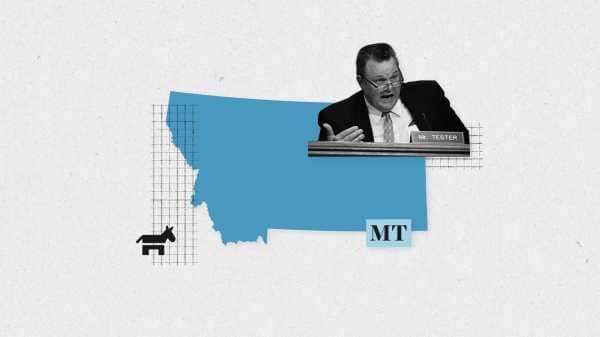
Who is the Democrat? Jon Tester. Elected in 2006. He’s pretty moderate (see this banking bill), but he’s been more willing than some other Democrats in red-leaning states to confront Trump.
Who is the Republican? Maryland accent–haver Matt Rosendale. First elected to Montana’s state legislature in 2010.
How much does the state like Trump? Trump in 2016: 56 percent. Trump now: 51 percent approval, 46 percent disapproval. Tester: 50 percent approval, 36 percent disapproval.
What’s interesting about this race, anyway? Did you see Tester’s approval rating? Montanans like this guy. The main wild card is how much Trump himself intervenes — especially after Tester helped sink the president’s Veterans Affair nominee, Ronny Jackson. The president has already started going after Tester pretty hard.
What does the polling say? Tester is maintaining a 5.5-point lead in the RCP average. But Cook ranks this race as Likely Democratic, which says a lot. Tester is probably the safest of the Senate Democrats running for reelection in Trump Country, though nothing is given.
West Virginia: Joe Manchin vs. Patrick Morrisey
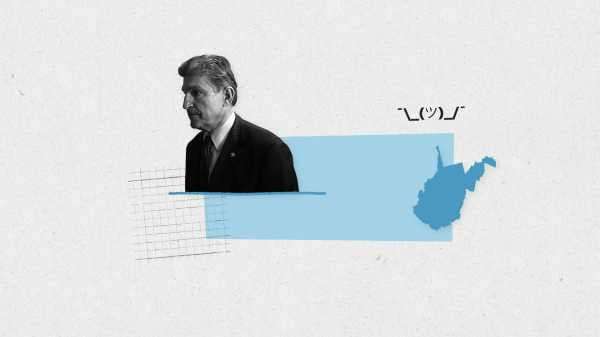
Who is the Democrat? Joe Manchin, elected to the Senate in 2010. He was governor and secretary of state before that. Maybe the most conservative Democrat in the Senate and a towering figure in West Virginia politics.
Who is the Republican? State Attorney General Patrick Morrisey prevailed in the May 8 primary, beating Don Blankenship, a former coal baron who ran a company found to be violating federal safety regulations when a mining accident killed 29 people, and avoiding a disaster for DC Republicans. Morrisey ran on his record as attorney general, where he sued the Obama administration repeatedly over environmental regulations and other federal rules, positioning himself as the conservative outsider in the race.
How much does the state like Trump? Trump won with 68 percent of the vote, his highest margin in the country. His approval rating is still 63 percent, the highest of any state. Manchin’s approval rating is okay: 45 percent approval, 43 percent disapproval.
What’s interesting about this race, anyway? Manchin has a strong history with the state, though his brand of centrism might risk alienating actual progressives in the year of the Resistance.
Morrisey seems like a replacement-level Republican, to be quite honest, and he was attacked in the GOP primary for being a bit of a carpetbagger and for his family’s links to an opioid manufacturer. But, in a boon for Republicans, Blankenship won’t be on the November ballot.
Here’s the vibe in West Virginia right now: “There’s a very strong anti-establishment sentiment in West Virginia, and there’s also an ‘it can’t get any worse’ sentiment,” Patrick Hickey, a political science professor at West Virginia University, told me earlier this year. “We’re just trying to shake it up.”
What does the polling say? Manchin is building a pretty strong lead: 8.4 points, according to RCP. But we had to include this race because of Trump’s popularity here and the fact that the folks at Cook say it’s a toss-up.
Sourse: vox.com
